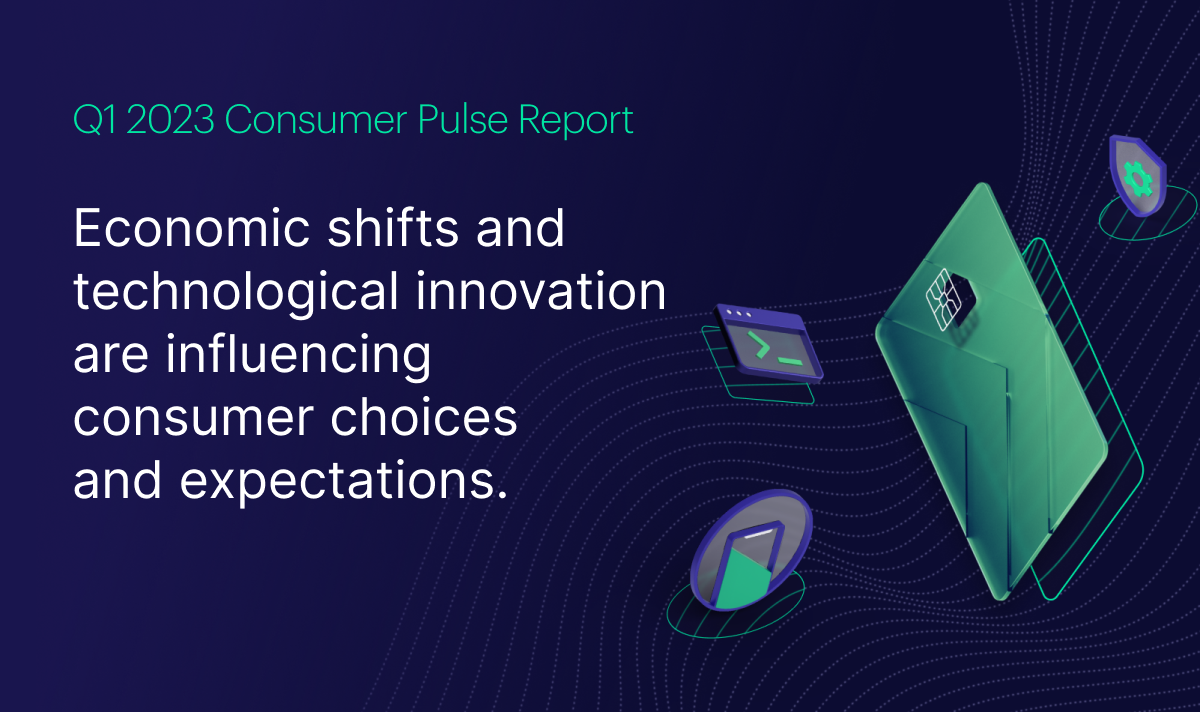Today we released our first Consumer Pulse Report, detailing the effects that dynamic economic circumstances and emerging financial technology are having on consumer behavior. The report, conducted in partnership with Propeller Research, surveyed 4,000 consumers in the US, UK and Australia and looks at the factors guiding their financial decisions in 2023.
One key driver for many consumers surveyed: Economic anxiety due to rising costs and an uncertain job market. Amongst those surveyed, 61% of 26-50 year olds reported that they’d changed their household budgeting due to the current economic circumstances, while roughly half of 18-25 year olds and 51-64 year olds said the same. Several other key takeaways include:
- Over half of respondents (57%) agreed that recent headlines about the economy had changed their household budget.
- 51% of consumers currently renting reported that interest rate increases had caused them to delay a house purchase, with 54% of renters citing rent increases in the last 6 months.
- In this economic environment, embedded finance options are making a clear case to consumers, with just under half (47%) of respondents reporting that they would consider financial services offered by non-traditional providers, including tech companies, social networks and retailers.
The rapid pace of innovation in financial services was another source of influence on consumers this quarter. In response to emerging new tools and services, consumers are evaluating their options in relation to their needs and level of awareness of emerging financial services.
Our report shows that in parallel to rising consumer uncertainties around escalating inflation, consumers are beginning to open themselves up to the unprecedented level of choice they now have in financial services. Consumers are weighing a profusion of options from non-traditional providers via embedded financial services. Almost half (47%) of respondents reported that they would consider financial services from non-financial institutions like tech companies, social networks and retailers. Considerable education gaps still remain for these new banking options, however. Amongst consumers who had not considered these emerging financial services, 29% reported not being aware of these options and 36% indicated they don’t see the value of these new services.
When respondents were presented with a list of newer digital banking features, approximately half indicated they were already using the tools or were interested in adopting them in the future. Most popular were the well-established feature of overdraft protection and less common savings tools, like automated deposits into savings accounts and rounding up card purchases to the nearest dollar and depositing those funds into savings. Get the full Q1 2023 Consumer Pulse Report here.




